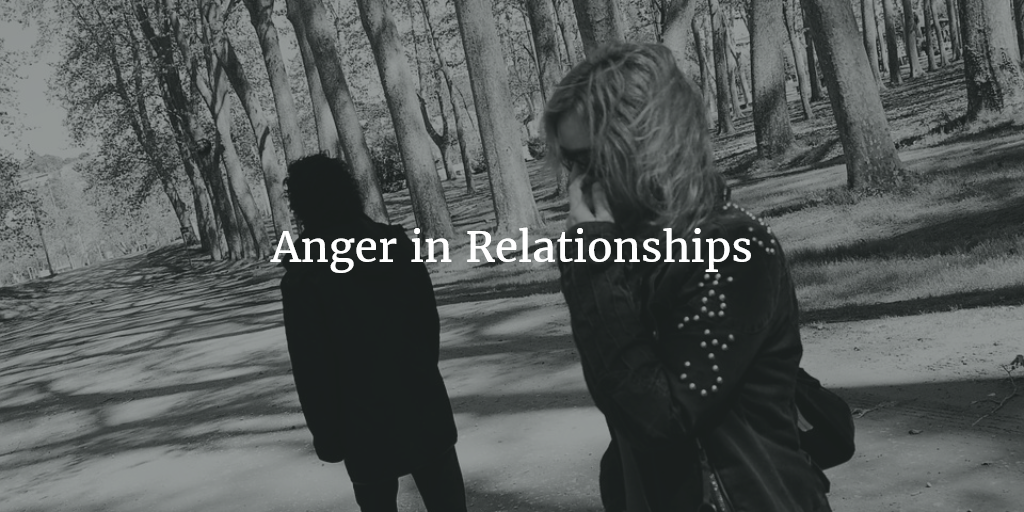 When anger gets out of hand it can undermine and even destroy a relationship. This can happen when we do not allow ourselves to become fully aware of the impact of our anger. At times, we are not even able to recognise that we are angry.
When anger gets out of hand it can undermine and even destroy a relationship. This can happen when we do not allow ourselves to become fully aware of the impact of our anger. At times, we are not even able to recognise that we are angry.
Outbursts, shouting and hurtful comments may characterise anger as well as prolonged tense silences. We may be the ‘guilty’ party but we feel out of control, ashamed and embarrassed.
Changing can be difficult for several reasons:
– it is too painful to talk about our anger;
– we do not recognise our behaviour as being angry or we don’t understand why we are angry
– we do not feel that we have any entitlement to be angry.
It’s too painful
We know that we are angry when there are outbursts, shouting or hurtful remarks. We may know that our tense silences are rooted in our anger. Watching other couples having fun can leave us frustrated and annoyed about our own relationships. Sometimes there is a feeling of losing out and a feeling of being unable to communicate one’s pain. We can feel isolated and alone. All of this can accentuate the pain.
Anger is a part of life. It is also a very real part of a relationship. Often the couple’s ability to tolerate their own and each other’s anger is an indication of the success of the relationship.
It is important to distinguish between normal, healthy expressions of anger and a more persistent, recurring anger which impacts on the individual’s and the couple’s welfare. In the latter case, there can be a gnawing feeling of dissatisfaction and frustration. We can feel that although we are angry, that we should not feel like this.
For many of us, managing anger means ignoring it, wanting it to go away, erasing it without having to think about it.
We do not recognise our anger or understand why we are angry
We can be angry without being able to acknowledge or even recognise it. We can find it extremely difficult to even think that we might be angry with a loved one or someone to whom we feel a debt of gratitude.
Eileen came to see me because she was being bullied in her job. She spoke about her home life and growing up.
My mother gave up everything for me. When she was young she stayed at home to look after her elderly parents and then married my father and lived on a farm. We were poor but she ensured that I went to school and college. She was a capable woman and would have loved to have furthered her education. I often felt guilty that she sacrificed do much for me.
Eileen lived at home after she started work and spent almost all her spare time attending to chores around the house. She had no social life and very few friends. She could not feel any anger towards her mother.
It transpired that she was extremely angry with her mother. She found it difficult to think that she could be angry. How could she feel anger towards a mother who had done so much for her?
When we repress anger in this way it does not go away. We can feel anxiety, inadequacy and indeed, depression. When the feeling comes over us we can feel overwhelmed. Or…we can express anger where it is not appropriate. In some cases, we do this to our partners. This anger is a misdirected. But we cannot find where it should go. It is a form of lashing out and is often rooted in a sense of injustice or sadness in our earlier lives. It can be painful seeking a home for our anger. It would be better if it did not exist, we feel.
We do not feel entitled to be angry
In Eileen’s case part of the reason she could not recognise her anger was that she did not feel that she had any entitlement to feel angry. Anger, after all, has had a lot of bad press! In Catholic belief, it is one of the 7 deadly sins. If we feel angry and do not feel that we are entitled to this feeling it can create other problems for us such as low self-esteem, anxiety, depression or sometimes physical and medical problems.
How can we deal with anger?
If we become angry and can acknowledge the feeling then we might be able to think before we act. By acknowledge I mean that we can we can accept that our feeling is real and valid and that it worth thinking about. It may be worth expressing your feelings when the anger has subsided. This can go a long way to helping us address our issues.
If you like more information or would like to talk about this you are welcome to ring me at 085-7600123 or email me at paulcooney7@gmail.com
It is possible to deal with anger and live a more fulfilled life with a happy relationship.